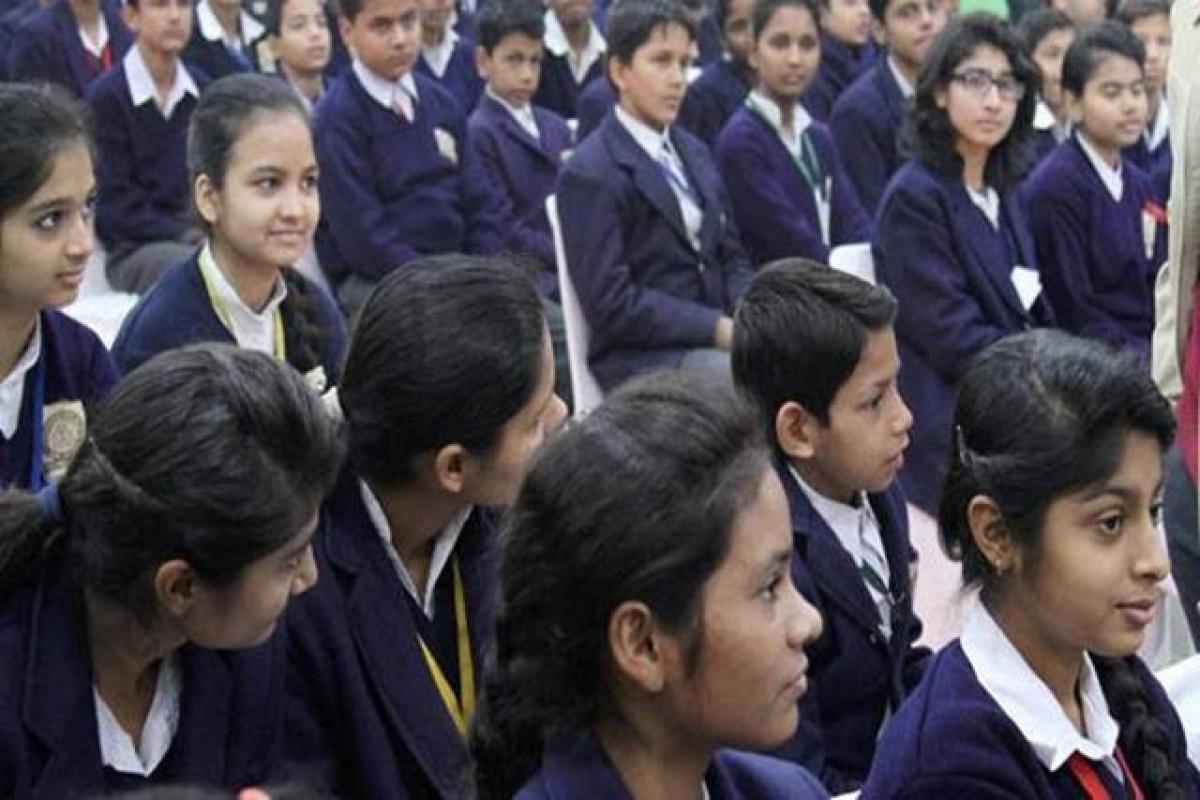Live
- Exhilarating ‘Benchmark’ of Venkat Changavalli
- Development activities worth `30 cr launched in Puthalapattu constituency
- Allegations against KTR baseless: BRS leader
- Megastar Chiranjeevi to Visit Allu Arjun’s Residence at 12 PM Today
- Nilima Rane: Trailblazer in Nursing
- Casual yet stylish office outfits for all-day comfort
- TTD to suspend all special darshans from January 10 to 19 amid Vaikuntha dwara darshans
- Naidu pats TDP leaders, cadres for enrolling 73L members
- Rupali Ganguly says for 20 years she never got an award
- Advanced anti-drone systems deployed for devotees’ safety at Mahakumbh
Just In

Giving a push to fast disposal of cases relating to children, south India\'s first Children\'s Court was inaugurated here Wednesday.
Hyderabad: Giving a push to fast disposal of cases relating to children, south India's first Children's Court was inaugurated here Wednesday. After Goa and Delhi, Telangana State has become the third State to have a child-friendly court and sixth in the country with features like separate waiting rooms for children and a video camera trial for the accused, mandated under the Protection of Children from Sexual Offences (POSCO) Act-2012.
The 'child-friendly' courtroom was jointly inaugurated at the Nampally Criminal Courts Complex here by Acting Chief Justice Ramesh Ranganathan of High Court of Judicature at Hyderabad and Director General of Telangana Police Anurag Sharma. POCSO stipulates child-friendly court rooms be put in place across all States at the earliest in the interest of children in need of care.
However, such courts are currently functional only in two States - Delhi and Goa. "This is for the first time in South India and the sixth court in the country to be child-friendly," Metropolitan Sessions Judge T Rajani said, adding, at present, there were over 1,640 cases under POCSO Act that were pending at various stages in different district courts of Telangana State till 2015.
Rajani also said since the court would not handle any other cases other than those relating to children, the volume of casework would be much less, enabling quicker disposal of cases."The child (witness/victim) will be allowed direct interaction with the judge, while the accused (who will be at a different location) will be able to view and hear the proceedings via two-way video conferencing in the courtroom," the judge said.
A two-way video communication system allows the child witness to identify the accused on camera. This also enables the judge to ask questions to the child and the accused without any physical interface. The judge and the police personnel would be in plain clothes in the children's court and unlike a normal court set-up, the child would not be allowed to come face to face with the alleged offenders to make sure he/she is not intimidated while the court proceedings were on.
Thus, providing a non-threatening atmosphere, the DGP said. "With increasing crimes against children, there is a dire need for systemic reforms in strengthening the evidence gathering process. The child-friendly space for recording the witness and testimony of the child will aid in improving the conviction rates for the crimes against children," Sharma said. The Nampally project was facilitated by NGO Justice and Care in collaboration with the State government and the judiciary.

© 2024 Hyderabad Media House Limited/The Hans India. All rights reserved. Powered by hocalwire.com







